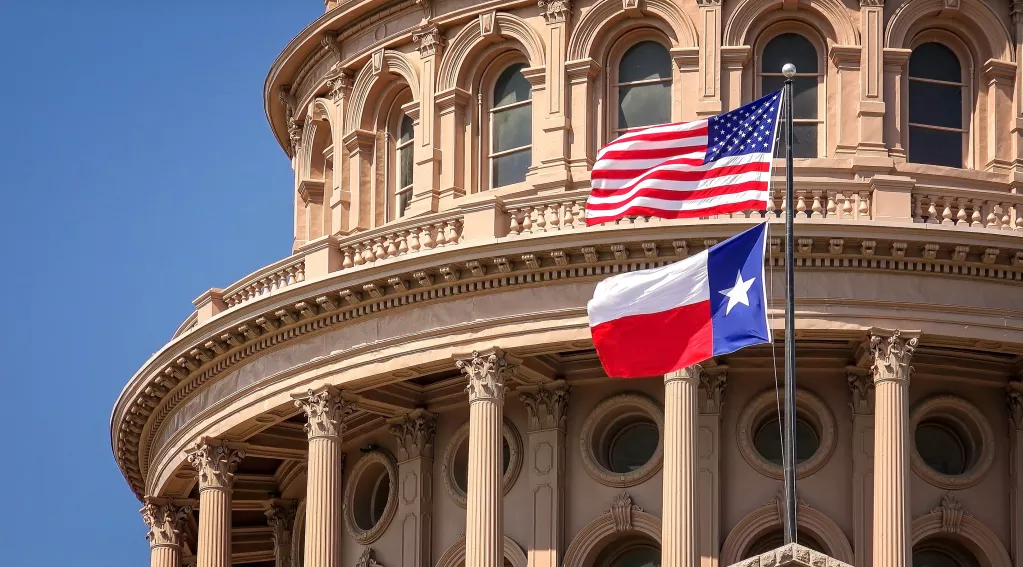United States v. Texas: A Primer on the Supreme Court Immigration Case

April 2016 | View the Full Report (PDF)
On April 18, the Supreme Court will hear arguments in the case United States v. Texas, which questions the constitutionality of President Barack Obama’s unilateral grant of de facto amnesty to almost 5 million illegal aliens. At issue are several executive actions taken by the president to shield illegal immigrants from deportation and offer benefits and services on what is alleged to be a temporary, but renewable, basis. In the case, Texas and 25 other states contend that by implementing these programs, the president overstepped his legal bounds.
Q: What is DACA?
A: The first executive action to grant amnesty to illegal immigrants, Deferred Action for Childhood Arrivals (DACA), dates to President Obama’s 2012 reelection bid. DACA initially granted a two-year deferred action term to illegal aliens who entered the United States before June 15, 2007, were under age 16 at the time of entry, and were under age 31 on June 15, 2012, among other criteria. The actions deferred deportation and the enforcement of any applicable immigration law for around 800,000 beneficiaries, It also granted beneficiaries work authorization.The status grants federal protection to illegal aliens. In 2014, new executive directives expanded the provisions of DACA to cover all illegal immigrants who entered the United States before the age of 16, not just those born after June 15, 1981. It also reset the entry date from June 15, 2007 to January 1, 2010 and it extended the relief period (including work authorization) to three years from two. This 2014 expansion, which is the only provision of DACA to be subject to the current Supreme Court case, explains why this directive is sometimes referred to as DACA+ or expanded DACA. Up to 1.4 million illegal aliens are eligible.
Q: What is DAPA?
A: The administration initiated Deferred Action for Parents of Americans and Lawful Permanent Residents the same time that it created DACA+. On November 20, 2014, soon after voters repudiated President Obama’s immigration policies at the polls, the administration issued ten directives to the Department of Homeland Security, including instituting DAPA, which would have exempted 87 percent of all illegal aliens from enforcement actions. DAPA grants three-year terms of deferred action to illegal aliens who are parents of a child who is a citizen or Lawful Permanent Resident, are in the country unlawfully, have been present in the United States since before January 1, 2010, are not removal priorities, have not committed serious crimes and “present no other factors that, in the exercise of discretion, makes the grant of deferred action inappropriate.” Applying to almost 5 million illegal aliens, the action required individuals to pay a fee and apply for work authorization. During a Senate hearing, an administration official admitted that DACA and DAPA recipients would be eligible to sponsor relatives from their home countries.
Q: What is the Supreme Court deciding?
A: The Obama administration implemented a series of policies that granted executive amnesty to millions of illegal aliens, bypassing the will of Congress, to whom the Constitution grants authority over immigration matters. The state of Texas and 25 other states sued to stop the programs, arguing that the administration overreached its constitutional authority. In February 2015, Judge Andrew Hanen of the Federal District Court in Brownsville, Texas, issued an injunction that temporarily halted the implementation of DACA and DAPA. The administration then took the case to the United States Court of Appeals for the Fifth Circuit, which upheld Judge Hanen’s injunction in November 2015. The Supreme Court agreed to hear the case and arguments will take place on April 18 with a decision likely to be handed down in June. The court will rule whether to uphold the injunction and end executive amnesty until the case is heard on its merits in Judge Hanen’s court.
Q: Why is this case important?
A: The implications for U.S. immigration policy are profound. At stake is the legitimacy of laws that restrict immigration in order to protect the social, economic and security interests of the American people. Also in jeopardy is the separation-of-powers doctrine, the cornerstone of our constitutional form of government. If a president has the power to nullify laws enacted by the legislative branch by simply refusing to enforce them or, as President Obama is attempting to do, substitute them with his own policies and programs, then the Constitutional powers of Congress are rendered meaningless. Those who support granting amnesty to illegal aliens should recognize that a ruling that vastly expands the Executive Branch’s ability to arbitrarily change the law would be a pyrrhic victory. It would emasculate the ability of Congress to set immigration limits and standards and it would render the courts irrelevant in ensuring the enforcement of immigration laws. Though this unilateral implementation of presidential power played out in the immigration context, there would be no way to stop a president from ignoring the will of the people and implementing his or her own policies on any issue in the future.
